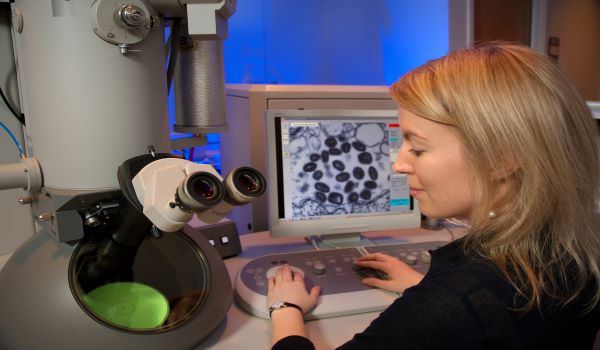To Test or Not to Test?: COVID-19 Testing for Animals and Humans
In the latest Facebook Live event, Viticus Group brought together Dr. Jennifer Ogeer, Dr. Peter Weinstein, and Dr. William Schaffner to provide...
2 min read
Shawn Tsuda, MD, FACS : April 1, 2020 11:09:48 AM PDT

Dr. Shawn Tsuda, serving as Human Medical Director on Viticus Group's Board of Directors, provides all health professionals with information and resources regarding telehealth to help slow the spread of COVID-19 while still taking care of patients.
As the world grapples with the COVID-19 pandemic, human health practitioners have collaborated remarkably through rapid dissemination of scientific and practical information, often via social media. One of the first questions that arose when social distancing suddenly became a necessary part of our personal and professional lives is how we can maintain quality care with our patients while preventing the spread of SARS-CoV-2.
Telehealth is a way to ensure uninterrupted care to our new and established patients. In the human health arena, governing bodies such as the Centers for Disease Control and Prevention, The Centers for Medicare and Medicaid Services, and The U.S. Department of Health and Human Services have quickly released guidelines and policy changes to help facilitate the interaction between physicians and patients electronically.
In veterinary medicine, governing organizations are also relaxing their requirements to make telehealth more feasible. The FDA recently announced that it intends to "temporarily not enforce certain requirements in order to allow veterinarians to better utilize telemedicine to address animal health needs during the pandemic." These changes involve the ability to establish VCPR electronically rather than requiring that veterinarians examine their patients in person.
Two main areas needed to be addressed: privacy and payment. What has emerged are temporary measures among regulatory agencies, insurance payers, and provider facilities to waive penalties and audits for privacy issues (as long as practiced in good faith) and ensure reimbursement for telehealth visits—whether through phone, dedicated video-conferencing software, or common social platforms like Apple FaceTime, Zoom, or Skype.
A potential silver lining that may emerge from this public health crisis is greater attention, respect, and adoption of our advanced communication technologies to provide patient care. Telehealth has wide-ranging applications among veterinarians, pharmacists, therapists, physicians, nurses, and more. Both during and after this current crisis, we may find ourselves asking how we can be prepared to use telehealth for future disasters and for everyday communication with our patients when life has normalized.
For now, our safety and that of our colleagues and patients necessitate embracing telehealth technology. As a start, I've created a small list of potential telemedicine vendors for interfacing with patients:
AmWell | https://business.amwell.com/
doxy.me | https://doxy.me/
DrFirst | drfirst.com
Medici | https://medici.md/
SnapMD | https://snap.md/technology/
Zoom | https://zoom.us/healthcare
Visit Viticus Group's COVID-19 in Veterinary Practice web page to get more news, updates, resources, and blogs about this novel virus.
Subscribe to our YouTube channel or check out our Resource Library full of great podcasts, videos, and digital downloads!
Disclaimer
Content may contain advertising and sponsorships. Advertisers and sponsors are responsible for ensuring that material submitted for inclusion is accurate and complies with applicable laws. We are not responsible for the illegality of any error, inaccuracy, or problem in the advertiser’s or sponsor’s materials.
Advertising material and/or opinions expressed by guest writers are not necessarily a reflection of Viticus Group policies or views.

In the latest Facebook Live event, Viticus Group brought together Dr. Jennifer Ogeer, Dr. Peter Weinstein, and Dr. William Schaffner to provide...

During this unprecedented time of global pandemic and economic standstill, our government has issued an unprecedented financial aid for employers to...

Hands-on continuing education can play a significant role in distributing updated knowledge to medical professionals, helping narrow the...